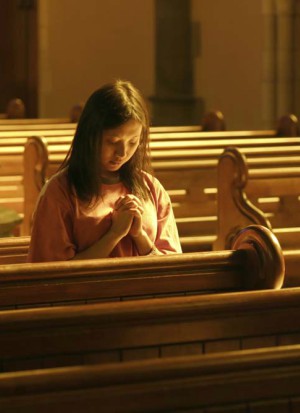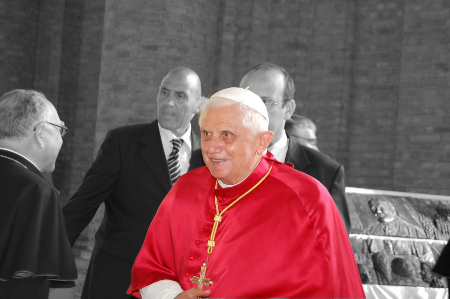We ask you, humbly: don't scroll away.
Hi readers, it seems you use Catholic Online a lot; that's great! It's a little awkward to ask, but we need your help. If you have already donated, we sincerely thank you. We're not salespeople, but we depend on donations averaging $14.76 and fewer than 1% of readers give. If you donate just $5.00, the price of your coffee, Catholic Online School could keep thriving. Thank you.Help Now >
Konrad Wimpina
FREE Catholic Classes
(WIMINAE, WIMINESIS).
Theologian, b. at Buchen in Baden, about 1465; d. at Amorbach in Lower Franconia, 17 May, 1531. His family, whose name was Koch, came from Wimpfen on the Neckar, hence he was called Wimpina. He matriculated at the University of Leipzig (1479-80) and remained there until 1505; in 1481 he obtained the baccalaureate degree, and in 1485 was made magister. He was a pupil of Martin Polich of Mellerstadt and an adherent of Thomistic philosophy. In 1491 he was made a member of the philosophical faculty, in 1494 rector, and in 1494-95 dean. Having taken the theological course, he was made cursor in 1491 and sententiarius in 1494; in 1502 he received the degree of licentiate. He was ordained at Wurzburg, in 1495, as subdeacon, about 1500 as priest. He received the degree of Doctor of Theology from Cardinal-Legate Perandi at Leipzig, 1503. In 1505 Elector Joachim I of Brandenburg called Wimpina to Frankfort-on-the-Oder to organize the new university and to be its first rector ; he was several times dean of the theological faculty. He received canonries in the cathedrals of Brandenburg and Havelberg, and in 1530 took part in the Diet of Augsburg as theologian of the Elector Joachim, whom he accompanied to Cologne for the election of King Ferdinand. He then retired to his native land.
 Hi readers, it seems you use Catholic Online a lot; that's great! It's a little awkward to ask, but we need your help. If you have already donated, we sincerely thank you. We're not salespeople, but we depend on donations averaging $14.76 and fewer than 1% of readers give. If you donate just $5.00, the price of your coffee, Catholic Online School could keep thriving. Thank you. Help Now >
Hi readers, it seems you use Catholic Online a lot; that's great! It's a little awkward to ask, but we need your help. If you have already donated, we sincerely thank you. We're not salespeople, but we depend on donations averaging $14.76 and fewer than 1% of readers give. If you donate just $5.00, the price of your coffee, Catholic Online School could keep thriving. Thank you. Help Now >
His first publication, "Ars epistolandi" (1486), and a poem in praise of the university and city of Leipzig (1488) are of little importance. In 1493 Wimpina showed in the "Tractatus de erroribus philosophorum" that Aristotle was wrong in various propositions which disagreed with dogma. As rector he delivered several orations that show wide reading. From 1500-04, in a dispute with his former instructor Polich, Wimpina defended theology and Polich poetry, each attaching the other with exaggerated and personal abuse. Wimpina was one of Luther's first opponents. In 1518 he defended the legend that St. Anne had three husbands in succession and had a child Mary, by each one of them (De d. Annae trinubio), against Sylvius Egranus, in whose defence Luther took part. In the dispute over indulgences Wimpina composed the theses which Johann Tetzel debated at Frankfort, 20 January, 1518. These theses contained the doctrine of the Church, but on the question of indulgences for the dead maintained merely a Scholastic opinion, preached by Tetzel. He also wrote a series of treatises and held disputations against Luther's doctrine. His polemics are combined in the "Anacephalaeosis" (1528), one of the most complete refutations of Lutheranism. In that age of pamphlets the work did not receive the attention it deserved. At the Diet of Augsburg Wimina, Mensing, Redorfer, and Elgersma drew up, against Luther's seventeen Swabian articles, the "Christlichen Unterricht gegen die Bekanntnus M. Luthers". Wimpina was commissioned to confute the "Confessio Augustana", and took part in the disputation about reunion. He was conservative, quiet, of unimpeachable character, immovable in his convictions, but somewhat petty by nature.








 Daily Readings for Thursday, April 18, 2024
Daily Readings for Thursday, April 18, 2024 St. Apollonius the Apologist: Saint of the Day for Thursday, April 18, 2024
St. Apollonius the Apologist: Saint of the Day for Thursday, April 18, 2024 Aspiration: Prayer of the Day for Thursday, April 18, 2024
Aspiration: Prayer of the Day for Thursday, April 18, 2024

